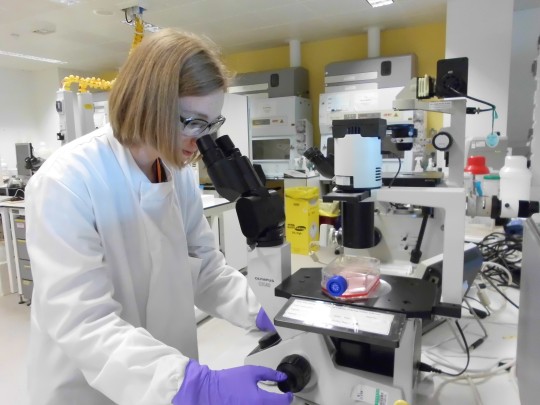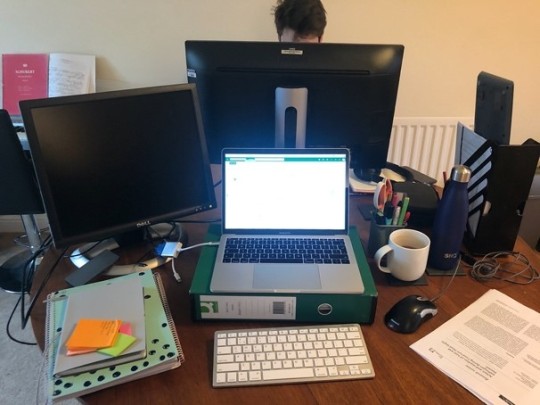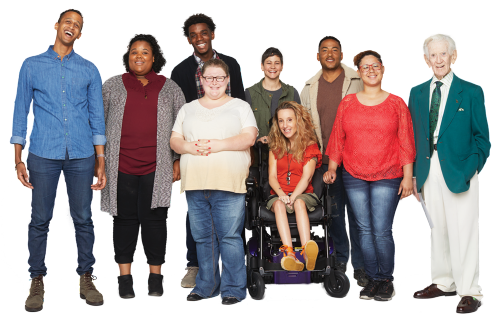#bioinformatics
Today we chat to SCI member Luca Steel about their life as a plant pathology PhD student in 2020.

Luca Steel is a PhD Student at Rothamsted Research
Can you please provide a brief summary of your research?
Zymoseptoria tritici is a fungal pathogen of wheat which can cause yield losses of up to 50%. We’re investigating an effector protein secreted by Z. tritici which acts as a ‘mask’, hiding the pathogen from host immune receptors and avoiding immune response.
What does a day in the life of a plant pathology PhD Student look like?
My days are very varied – from sowing wheat seeds to swabbing pathogenic spores onto their leaves, imaging symptoms, discussing results with my supervisor and lab team, and of course lots of reading. It doesn’t always go to plan - I recently attempted to make some wheat leaf broth, which involved lots of messy blending and ended up turning into a swampy mess in the autoclave!

Wheat in the incubator!
How did your education prepare you for this experience?
The most valuable preparation was my placement year at GSK and my final year project at university. Being in the lab and having my own project to work on made me confident that I wanted to do a PhD – even if it was a totally different research area (I studied epigenetics/immunoinflammation at GSK!).
What are some of the highlights so far?
My highlight was probably attending the European Conference on Fungal Genetics in Rome earlier this year. It was great to hear about so much exciting work going on – and it was an added bonus that we got to explore Rome. I’ve also loved getting to know my colleagues and being able to do science every day.
What is one of the biggest challenges faced in a PhD?
My biggest challenge so far has probably been working from home during lockdown. Although I am very privileged to have a distraction-free space and good internet connection, it was difficult to adjust to working from my kitchen! It was sad abandoning unfinished experiments, and I missed being in the lab – so I’m glad to be back now.

Pandemic Workstations
What advice would you give to someone considering a PhD?
If you’re sure you want to do one, then absolutely go for it and don’t be afraid to sell yourself! If not, I’d recommend spending some time working in a lab before you apply and chatting to any prospective labs. If you don’t get a reply from the PI, existing students/post-docs in the group are often very happy to talk and give honest opinions.
How have things been different for you because of the global pandemic?
I was lucky that the pandemic came early on in my PhD, so I had a lot of flexibility to change what I was working on. I switched from lab work involving lots of bioimaging, towards a more bioinformatic approach. My poor laptop will be glad when I’m back to using my computer at work!
Luca Steel is a PhD Student at Rothamsted Research and a member of SCI’s Agri-Food Early Career Committee
All of UsAdvances
Officially launched in 2018, the All of Us Research Program represents a massive, long-term effort to gather information from 1 million or more persons living in the United States, then use that data to accelerate health research and medical therapies. The biggest emphasis is upon gathering information on racial, ethnic and cultural groups who have historically been underrepresented or ignored in medical research.
Today, the sponsoring National Institutes of Health announced the release of the first genomic dataset generated by All of Us: nearly 100,000 whole genome sequences encompassing diverse individuals that can be used as a national resource for studies covering a wide variety of health conditions.
UC San Diego is part of the All of Us program, led by Lucila Ohno-Machado, MD, PhD, Distinguished Professor of Medicine, chair of the Department of Biomedical Informatics at UC San Diego Health, and associate dean for informatics and technology.
“As modern medicine seeks to become more precise and personalized, it necessarily requires more and more data to both understand the big picture of health and disease and, more specifically, how each person fits into the whole,” said Ohno-Machado. “With this first public genomic dataset, All of Us begins to meet its goals and expectations, allowing physicians and scientists to parse the mysteries and challenges of diseases across the health spectrum in new, individualized ways.”
— Scott LaFee
Post link

